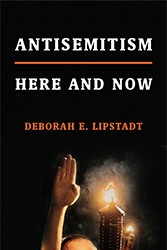A good deal of attention has been focused in recent years on the resurgence of anti- Semitism in Europe, the United States, and the Middle East. Since the collapse of the Oslo peace accords in 2000 and the launching of a terrorist war against Israel by Hamas and other Palestinian groups, hostility to Jews and especially to the Jewish state has escalated in ways that few foresaw. The resurgence of anti- Semitism may not have been caused by these events, but it has been fueled by them and has intensified since the 9/11 strikes in New York and Washington, D.C. and the wars that have followed in Afghanistan and Iraq. This persistent prejudice is clearly brewing in the world again. Across Europe there have been a series of violent assaults against Jews and Jewish institutions on a scale not seen since World War II. Anti-Semitism can be detected on the political right, and as Bernard Harrison so ably demonstrates on virtually every page of his important book, it has also found a home on the political left in a fierce anti-Zionism that negates the very right of Israel to exist and resembles traditional anti-Semitism at its worst. The charge often heard in Europe, and to some degree in America in the press, among academics and senior intellectuals and politicians, during protests, equating Israelis with Nazis and Zionism with Nazism and racism is emblematic of these shrill attacks. In the Muslim world, particularly in its Jihadist versions, there is a hatred of Jews that seems to be at the core of its ideology and world view. The belief in an international Jewish conspiracy is only one of the several classic myths about Jews that are currently widely believed in the Muslim world. Jewish-Zionists are behind much of what ails Islam today, this irrational theory claims, and alarmingly “The Protocols of the Elders of Zion” is now enjoying a new popularity and is reaching millions of new consumers.
The three books reviewed here provide some welcome light and analysis on this murky, but alarming problem. Kenneth Stern, the American Jewish Committee’s expert on anti-Semitism since 1989, offers Anti-Semitism Today, a concise account and analysis of the new global anti-Semitism. He writes with the confidence and commitment of someone who has been on the frontlines of the fight against anti-Semitism, but his passion is tempered by reflection and evidence. In addition to describing what is happening in the world, his most important contributions are his chapters on the challenges being faced on the American campus, and his suggestions for combating anti- Semitism and the need to develop new strategies and early warning measurements. The book is a primer for that struggle.
In an exceptionally well-crafted book, The Resurgence of Anti-Semitism: Jews, Israel, and Liberal Opinion, Bernard Harrison, a distinguished British philosopher, examines why the political left has become so comfortable with anti-Semitism newly dressed up as anti-Zionism. He demonstrates how it has spread to infect “left-liberal” discourse on many other levels and he explores how the anti-racist left finds itself, ironically, in the thick of fomenting one of the earliest forms of racism. As Andrei Markovits does as well in Uncouth Nation, Harrison shows that anti- Semitism in Britain and in Europe generally is connected to anti-Americanism and is gripped by an obsession with anti-Zionism which helps foster European identity, assuage old guilts about historic European anti-Semitism and has the added benefit of being cloaked in the rhetoric of moral virtue itself. Britain is today second only to France as the site of the most numerous anti-Semitic incidents. In addition to the hundreds of annual assaults and desecrations, Britain has been at the forefront of the anti-Israel boycott and divestment campaigns led by the Church of England and the country’s largest teachers’ union. Harrison spends much of the book debunking the false charges levied against Jews and Israel and exposing the bogus nature of the accusatory rhetoric now commonly employed against Israel such as “apartheid,” “racism,” “fascism,” “genocide,” and “colonialism.”
Harrison, Markovits, and Stern reveal the nature of contemporary anti-Semitism, the groups and cultures most susceptible to these ideas, what function they play for them, and why anti-Semitism is emerging in force now. They are required reading for all who fear that the threat is real and who want to help devise the best strategy to fight it.





